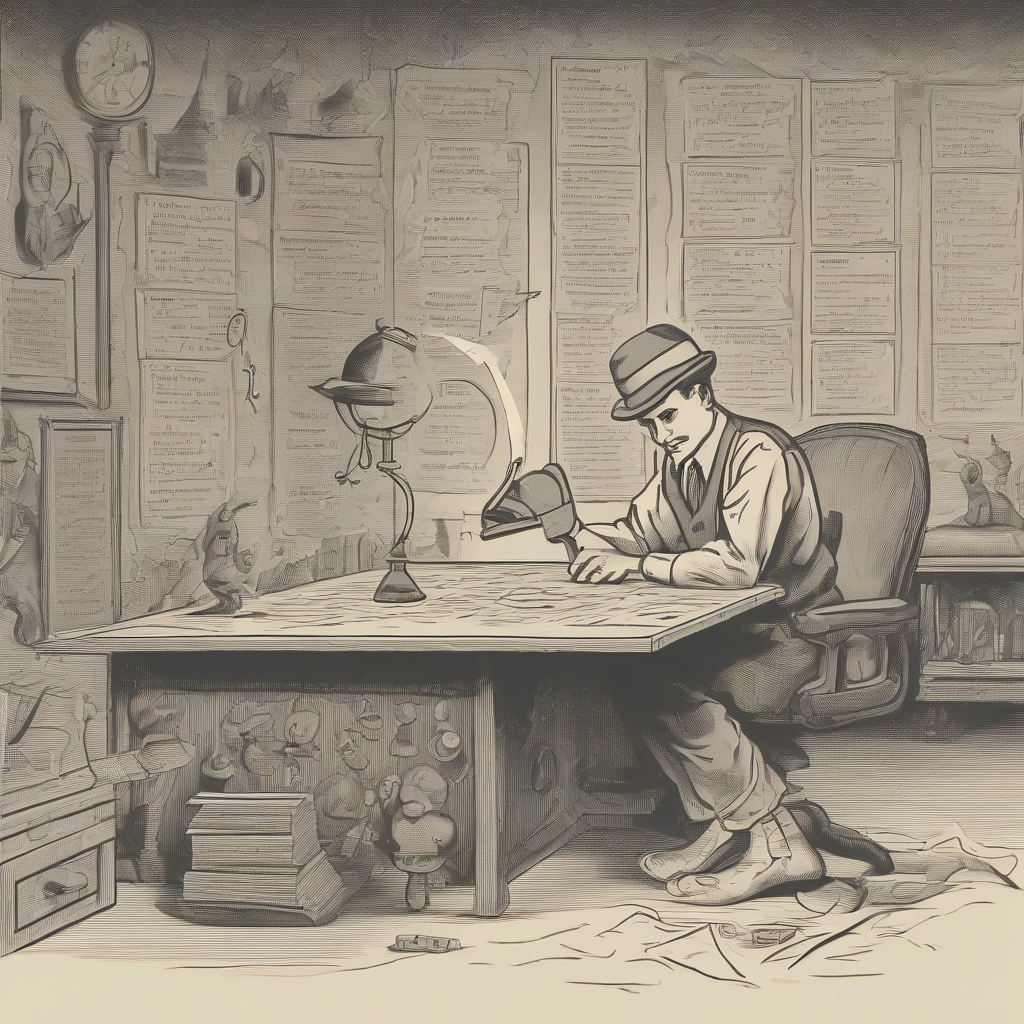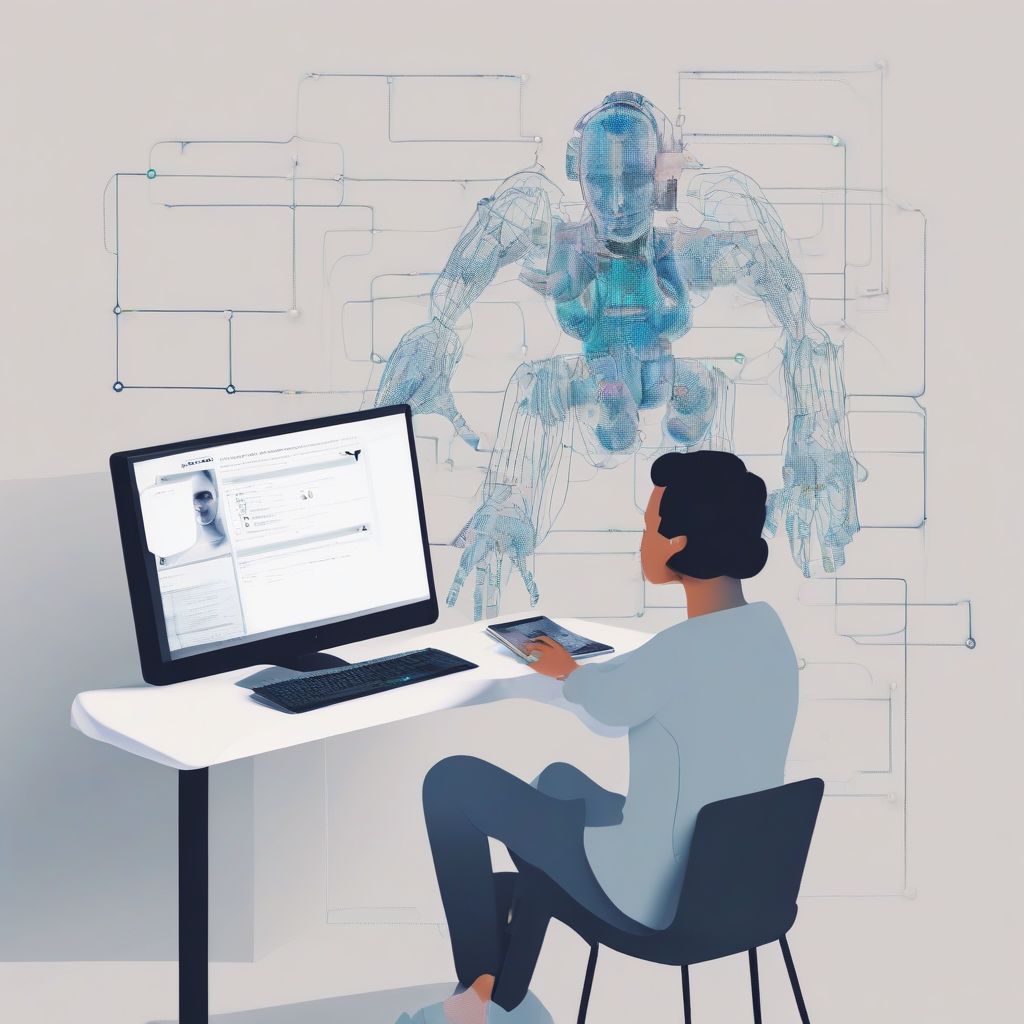Are You Smarter Than A.I.? Some experts predict that A.I. will surpass human intelligence within the next few years. Play this puzzle to see how far the machines have to go.
The rapid advancement of artificial intelligence (AI) has sparked both excitement and apprehension. Experts across various fields are divided on the timeline, but many predict that AI will surpass human intelligence within the next few decades, a milestone often referred to as Artificial Superintelligence (ASI). This raises profound questions about the future of humanity, our place in the world, and the very definition of intelligence itself. But before we delve into the philosophical implications, let's test your own cognitive abilities against some challenges that currently stump even the most advanced AI systems. This puzzle will explore the nuances of human intelligence, showcasing areas where we still significantly outperform machines.

The Nature of Intelligence: Beyond Calculation
The human brain is a remarkably complex organ, capable of feats far beyond the current capabilities of even the most sophisticated AI. While AI excels in tasks involving pattern recognition, data processing, and complex calculations, it struggles in areas that require common sense reasoning, emotional intelligence, and creativity. Our intelligence is not simply a matter of processing power; it's a multifaceted phenomenon shaped by experience, intuition, and a capacity for abstract thought.
AI currently operates primarily through algorithms and vast datasets. It can learn from data, identify patterns, and make predictions with incredible accuracy. However, its understanding is largely confined to the data it's trained on. It lacks the contextual awareness and adaptability that humans possess. We can apply knowledge learned in one situation to entirely new and unforeseen circumstances, a feat that remains challenging for AI.
Let's consider a simple example: understanding sarcasm. A human effortlessly picks up on the subtle nuances of tone and context to decipher sarcasm. AI, however, often fails to grasp the underlying intent, treating the words literally rather than interpreting the meaning behind them. This highlights a fundamental difference: human intelligence is imbued with emotional and social intelligence, allowing us to understand implicit meaning and navigate complex social dynamics. These aspects of intelligence remain largely unsolved problems in AI research.

The Puzzle: A Test of Human Ingenuity
This puzzle aims to highlight the limitations of current AI and celebrate the unique capabilities of the human mind. It's designed to test not only your logical reasoning but also your creativity and ability to think outside the box. The following is a series of interconnected challenges:
Challenge 1: The Word Puzzle
Find the word that is missing from this sequence: CAT, DOG, BIRD, ________, LION
The answer requires more than just pattern recognition; it involves understanding semantic relationships and common-sense knowledge about animals.
Challenge 2: The Visual Puzzle
[Include a visual puzzle here - perhaps a complex geometric shape with missing pieces or a visual analogy]
This puzzle tests your spatial reasoning and ability to identify patterns and relationships in a visual context. While AI can be trained to solve certain types of visual puzzles, more abstract or ambiguous puzzles often stump them.
Challenge 3: The Logic Puzzle
All men are mortal. Socrates is a man. Therefore, __________.
This classic syllogism tests your logical deduction skills. While AI can solve syllogisms, the ability to understand the underlying principles of logic and apply them to new situations is a hallmark of human intelligence.
Challenge 4: The Creative Challenge
Write a short story using the following three words: Clock, Rain, Shadow.
This challenge emphasizes creativity and the ability to weave together disparate concepts into a coherent narrative. While AI can generate text, producing truly original and emotionally resonant stories remains a significant hurdle.
Beyond the Puzzle: The Future of AI and Human Intelligence
While this puzzle demonstrates certain aspects of human intelligence that currently surpass AI capabilities, it's essential to acknowledge the rapid pace of AI development. Machine learning algorithms are constantly improving, and future advancements may bridge the gap in areas like common-sense reasoning and creative problem-solving.
The future interaction between humans and AI is likely to be complex and multifaceted. It's not necessarily a competition; rather, it's an opportunity to leverage the strengths of both. AI can assist humans in tasks that are repetitive, data-intensive, or require immense processing power, while humans can bring creativity, intuition, and emotional intelligence to the table. The key lies in developing AI systems that are collaborative and augment human capabilities rather than replacing them entirely.
The question "Are you smarter than AI?" is not easily answered. In certain narrowly defined tasks, AI may already outperform humans. However, in terms of general intelligence, adaptability, and emotional intelligence, humans still possess a considerable advantage – for now. The future will depend on how we choose to develop and utilize AI, ensuring that its advancements serve humanity's best interests. The challenges presented in this puzzle serve as a reminder of the remarkable complexity and versatility of the human mind, and the exciting, yet uncertain, journey ahead as we navigate the age of artificial intelligence.
